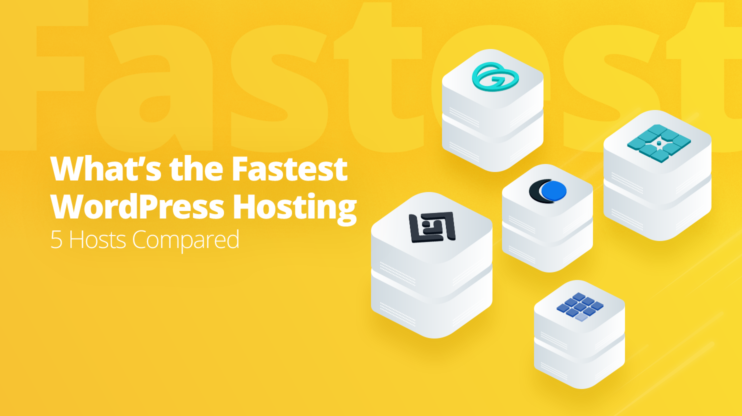Hosting, a service that makes your website or application available on the internet, has an important role in your website’s accessibility, security, and efficient performance. Whether you’re running a personal blog or a large-scale business site, choosing the right hosting solution can significantly impact your site’s success. This article discusses the key differences between Web Hosting and Cloud Hosting.
After assessing each of their pros, cons, performance, and cost structures, you will gain valuable insights to select the ideal hosting solution for your needs. As online businesses grow, the right hosting provides better reliability, room to expand, and improved performance.
FAQ
Which is better: Web Hosting or Cloud Hosting?
What is the difference between cloud and web server?
What is the difference between traditional Web Hosting and Cloud Hosting?
Is website hosting a cloud service?
What is Web Hosting?
Web Hosting is a broader term that describes the place where all your site’s files and information are stored. It involves many types and providers. Web Hosting stores and manages the files needed to run a website on a server. There are different types of hosting, each fitting various needs, offering options like shared, dedicated, and VPS solutions. Each has distinct features, affecting performance, cost, and management level.
In Web Hosting, service providers use a server to store website files. When someone types a domain name into a browser, the server sends the files to display the site.
Traditional hosting usually involves a single physical server that hosts multiple sites. Shared Hosting shares resources among many websites, while Dedicated Hosting gives a site its own server. Virtual servers or VPS split a server into separate sections for different sites, offering more control and resources.
Advantages of Web Hosting
- Cost-effectiveness, especially with shared plans is one major advantage of Web Hosting. Users can start with low-priced options and upgrade as their needs grow.
- Manageability is another benefit. Hosting companies often provide control panels that help users easily manage their server resources and settings.
- Various types of Web Hosting allow users to choose the best fit, based on specific requirements like traffic or storage needs.
Disadvantages of Web Hosting
- Shared hosting can have performance issues because sites share the same resources. If one site uses too much, others might slow down.
- Security risks are another downside. Traditional Web Hosting can be more vulnerable to attacks, as all sites share the same physical server.
- Limited server resources might restrict growth for some websites. As traffic increases, businesses may need to move to more expensive plans or types, like Dedicated or Cloud Hosting, to handle the demand.
What is Cloud Hosting?
Cloud Hosting uses cloud technology to provide flexible and scalable hosting solutions. Through interconnected servers, it distributes resources, improving reliability and efficiency. Businesses can access these resources as needed.
Cloud Hosting employs multiple servers, often called cloud servers, which are networked together. These servers form a cloud, offering computing resources like storage and processing power to users.
Resources are allocated dynamically, meaning if one server fails, others take over, ensuring minimal downtime. This can be particularly useful for businesses that need resources on demand due to fluctuating traffic or workloads.
Users only pay for the resources they use, making it a cost-efficient solution for businesses. Cloud computing powers this system, allowing fast deployment and expeditious scaling capabilities.
Advantages of Cloud Hosting
- Scalability is one of the main benefits of Cloud Hosting. Businesses can quickly scale resources up or down based on demand. This adaptability is ideal for dealing with varying traffic without planning for peak times.
- Reliability is another advantage. With data mirrored across multiple servers, the risk of downtime due to server failure is reduced.
- Flexible payments, which allows companies to pay only for the resources they use, making it a budget-friendly option. Resources are also accessible anywhere with an internet connection, adding to its convenience.
Try 10Web for free, and enjoy all the benefits of a secure Google Cloud Partner hosting.![]()
#1 Managed WordPress Hosting
Disadvantages of Cloud Hosting
- Security can be a concern for businesses with sensitive data. Since data is stored off-site, controlling it becomes more difficult, potentially making it more vulnerable.
- Latency issues may occur, especially over poor internet connections. This could impact performance, particularly for websites or applications reliant on fast data processing.
- Cost considerations can also arise. Though pay-as-you-go is advantageous, costs could escalate if businesses are not careful with resource management.
Similarities between Web Hosting and Cloud Hosting
Web Hosting and Cloud Hosting both make websites available online by providing storage, processing power, and internet access. They store website data on servers, making it easy for visitors to view the content. Users can choose from different hosting types, like shared or dedicated options, to match their specific needs. Both services also include important security features like SSL certificates and firewalls to protect websites from online threats.
A key feature of both is scalability, meaning users can increase their resources as their website grows. Cloud Hosting usually offers more flexible, on-demand scaling. Both types of hosting come with different pricing plans based on things like storage and control, so users can pick what works best for them. Both services offer customer support to help users manage and maintain their websites.
Differences between Web Hosting and Cloud Hosting
Web Hosting typically refers to hosting a website on a single physical server, whether shared with others (shared hosting) or dedicated solely to one user (Dedicated Hosting). Cloud Hosting, on the other hand, relies on a network of interconnected virtual servers, allowing for more flexibility and scalability. With Cloud Hosting, resources are pulled from multiple servers as needed, offering better uptime and handling of traffic spikes, while traditional Web Hosting is generally more limited in resource allocation and scalability.
| Comparison Point | Web Hosting | Cloud Hosting |
|---|---|---|
| Performance | Performance depends on a single server, which may lead to slower load times during traffic spikes. | Performance is distributed across multiple servers, ensuring faster load times and better handling of high traffic. |
| Scalability | Limited scalability, requires upgrading to a higher plan or moving to another server. | Easily scalable, can add or reduce resources dynamically as traffic demands change. |
| Reliability | Prone to downtime if the server goes down or experiences issues. | High reliability due to the network of interconnected servers, reducing the risk of downtime. |
| Management | Often comes with managed services, suitable for beginners with limited technical knowledge. | Requires more technical knowledge, though some providers offer managed Cloud Hosting services. |
| Customization | Limited in customization as the user is restricted by the shared server environment. | Highly customizable with greater control over server configurations and software. |
| Security | Security risks due to shared resources with other users on the same server. | More secure, with isolated environments and better security protocols in place. |
| Migration | More difficult to migrate to another hosting service due to limited resources and server constraints. | Relatively easy to migrate, as Cloud Hosting is designed for flexibility and movement between servers. |
| Cost | More affordable, especially for small websites, with fixed pricing models. | Typically more expensive due to the pay-as-you-go model, but costs vary based on resource usage. |
Which one is best for you: Considerations before making a choice
You should consider a few key factors before choosing between Web Hosting and Cloud Hosting. Here are the key points to pay attention to. Each hosting type has its pros and cons. Understanding these can help you choose the best option for your website.
Let’s break down the key considerations and learn why 10Web’s Cloud Hosting could be the ideal solution for businesses looking for scalability, performance, and advanced features at an affordable price.
Budget: Web Hosting is usually cheaper, making it a good choice for those with a limited budget. Cloud Hosting is more expensive, but offers benefits like scalability. You can consider 10Web for reliable and affordable Cloud Hosting with advanced features.
Scalability: If the website expects to grow or experience traffic spikes, Cloud Hosting can be better. It allows more flexibility and can handle sudden increases in visitors. If you choose 10Web as your managed Cloud Hosting provider, its auto-scaling on cloud infrastructure will ensure your website can handle traffic spikes effortlessly.
Performance needs: For websites needing fast response times, Cloud Hosting is often a better choice due to its ability to distribute load across multiple servers. For high-performance sites, 10Web’s optimized infrastructure ensures fast load times and smooth operations.
Technical knowledge: Cloud Hosting often requires more technical skills to manage effectively. Web Hosting typically offers easier management with fewer complexities. With 10Web’s automated platform, even users with minimal technical skills can enjoy the benefits of Cloud Hosting.
Security: Both hosting types offer security features, but Cloud Hosting sometimes provides enhanced security options. Evaluate the specific security requirements and what each hosting service offers. For instance, 10Web’s cloud hosting provides superior, automated security solutions.
Customization: For server settings, you will need to have a lot of control. Cloud Hosting generally offers more customization, which can be beneficial for developers or businesses needing specific configurations. Powered by Google Cloud, 10Web offers the flexibility of Cloud Hosting, allowing you to scale and modify resources as required.
Recovery and backup: Cloud Hosting often has better recovery options since it is distributed. Check the backup features offered by each hosting type before you make a choice. For dynamic websites that experience frequent changes, 10Web offers real-time backups that capture every modification instantly, minimizing data loss.
Think about the website’s needs and goals. Knowing what each hosting option offers helps find the best option for you.
Conclusion
The choice between Web Hosting and Cloud Hosting depends largely on your website’s specific needs and growth potential. While Web Hosting is cost-effective for smaller websites or those with limited traffic, Cloud Hosting offers scalability, performance, and reliability. So, the latter becomes ideal for businesses that expect growth or experience changing traffic.
By understanding the key differences in features, you can make an informed decision that aligns with your budget and technical requirements. For businesses seeking flexibility, security, and high performance, solutions like 10Web’s Cloud Hosting provide a powerful, automated platform that meets both current and future needs.
Try 10Web for free, and enjoy all the benefits of a secure Google Cloud Partner hosting.![]()
#1 Managed WordPress Hosting













